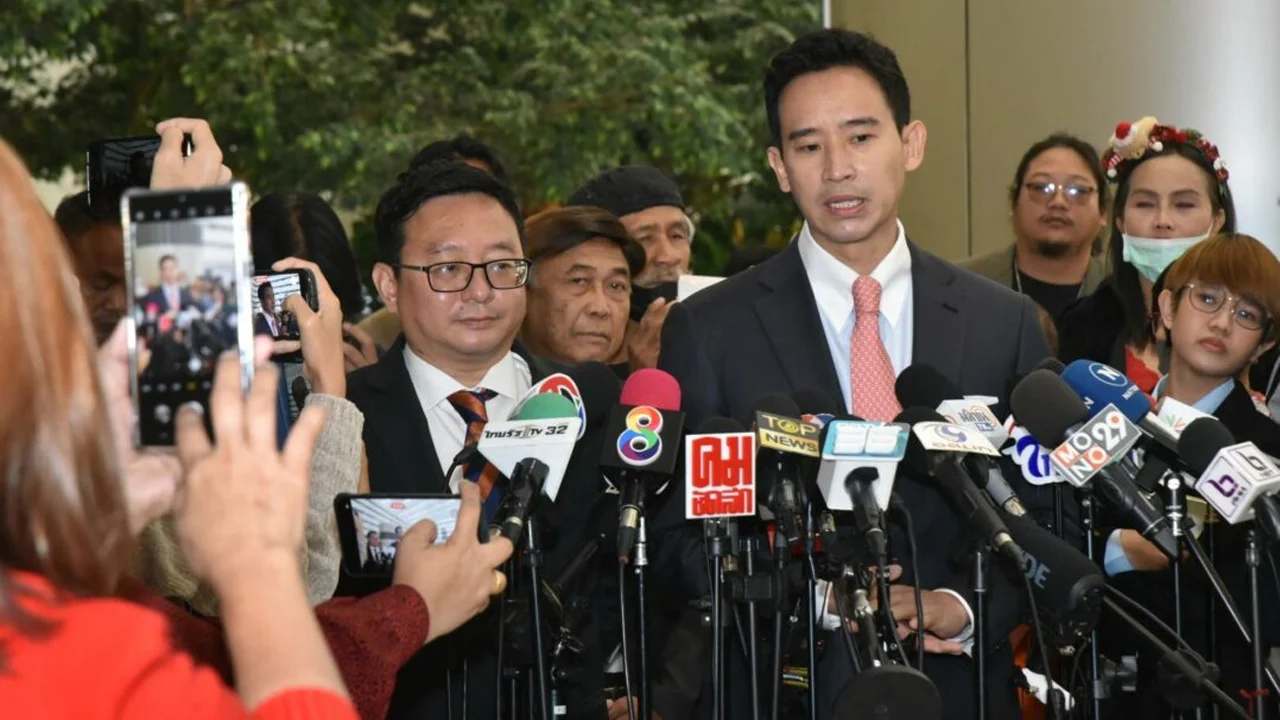EC intensifies legal push to dissolve opposition MFP

The Election Commission (EC) intensified its legal pursuit to disband the opposition Move Forward Party (MFP) by submitting additional documents to the Constitutional Court. EC Secretary-General Sawaeng Boonmee confirmed that these documents pertain to legal issues surrounding the case and were delivered to the court yesterday.
Sawaeng stated that presenting a list of witnesses was unnecessary because the court’s previous ruling on the MFP’s stance regarding the lese-majeste law provided sufficient grounds for the EC to proceed with its case against the party.
MFP leader Chaithawat Tulathon has strongly objected to the EC’s actions, arguing that dissolving a political party is a significant move that demands thorough fact-finding and investigation. He emphasised that the EC must adhere strictly to the legal procedures outlined in the organic law on political parties, instead of making subjective interpretations.
In response to the EC’s clarification issued on June 13, which was met with criticism for allegedly bypassing essential procedural steps, Sawaeng commented, “Let’s wait for a ruling from the court.”
The EC’s petition, submitted in March, requests the court to dissolve the MFP based on its ruling from January 31. The court had determined that the MFP’s attempts to amend Section 112 indicated a motive to undermine the constitutional monarchy. This ruling forms the basis of the EC’s argument that the MFP violated Section 92 of the organic law on political parties, which grants the court authority to dissolve any party perceived as a threat to the constitutional monarchy.
The court accepted the petition for a hearing earlier this month.
Party dissolution
The EC has called for the dissolution of the party, the revocation of the rights of party executives to stand for election, and a prohibition on those executives from registering or serving as executives of a new party for ten years, as stipulated under Sections 92 and 94 of the law.
The MFP had proposed amendments to the lese-majeste law, including a stipulation that only the Bureau of the Royal Household could file lese-majeste complaints. Currently, any individual or group can file a royal defamation complaint, obliging police to investigate.
The MFP argues that this current provision allows politicians and authority figures to misuse the law to suppress dissenting opinions.
Additionally, the party has advocated for reduced sentences for lese-majeste convictions. Presently, a conviction under Section 112 carries a sentence ranging from three to fifteen years, reported Bangkok Post.
Courts frequently cite the seriousness of the offence as justification for denying bail to individuals awaiting trial or appealing their convictions.
Latest Thailand News
Follow The Thaiger on Google News:


























